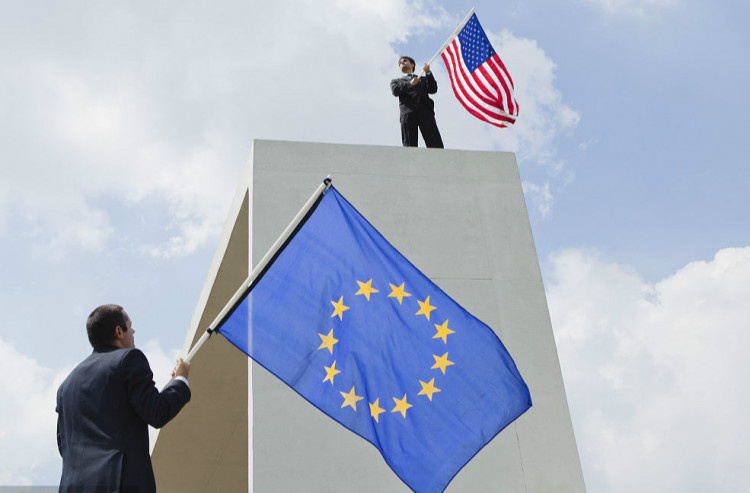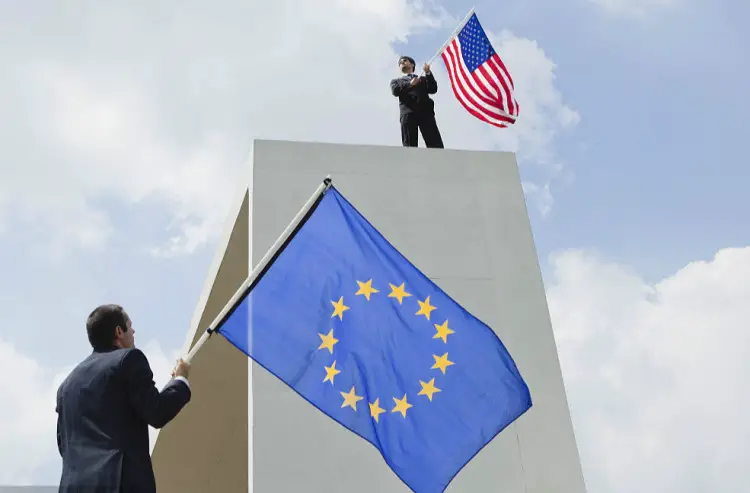By Ren Yan from People’s Daily

The European Commission recently released a supplementary statement of objections on an in-depth investigation into alleged monopolistic practices of US chip supplier Qualcomm, after the commission fined Google high for breaching the antitrust rules of the European Union (EU).
The penalties, coming amid strained trade ties between the EU and the US, is regarded as a signal that good days of American technology giants in the EU will come to an end as Washington keeps increasing tariffs on EU products.
The statement is a procedural step of the investigation against Qualcomm based on the EU anti-monopoly rules, the commission said. The investigation against Qualcomm was initiated by the commission in December 2015 after the US chip maker was accused of monopoly practices by one of its major rivals.
The focus of the 2015 statement of objection was assessing whether or not Qualcomm had sold chipsets at prices below cost in order to edge out its competitors, while the supplementary statement issued this time will mainly conduct investigation on how much below cost the US company was selling its baseband chips.
The EU has already fined Qualcomm following the previous antitrust investigation. In January this year, the European Commission disclosed that between 2011 and 2016, Qualcomm had been making significant payments to Apple on condition it would not buy from rivals.
An agreement signed by the two made clear that Qualcomm would reduce the payments to Apple if the latter breached the rule.
The EU decided to fine Qualcomm $1.23 billion, which equaled 4.9 percent of the company's turnover in 2017, as the agreement was found to have severely violated EU antitrust rules and adversely affected fair market competition.
This time, Qualcomm might face penalties of up to $2.3 billion if the latest EU accusation against it turns out to be true. The figure is 1/10 of the company’s global revenue – with the ratio being the upper limit of fines for monopoly practices under EU rules.
The EU judicial department disclosed recently that it had sent a new list of accusations to Qualcomm. Analysts pointed out that these papers usually reaffirm the preliminary conclusion drawn by the supervisory organization and explain the initial allegations to the company concerned.
The EU statement, though said to be just a routine procedure, is widely regarded as a counter measure against the high tariffs imposed on European products by the US amid the escalating trade disputes between the two parties.
It is noteworthy that just one day before announcing the additional investigation into Qualcomm, the EU fined Google a record-breaking 4.3 billion euros (around $5 billion) for monopoly.
The European Commission said it was fining the US tech giant for abusing the dominance of Android and pre-installing Google Search on Android devices to ensure that traffic on Android devices goes to the Google search engine and therefore cement its dominant position in general internet search and shut out its rivals from the market.
It was the second penalty Google had received from the EU this year, which was thought-provoking against the backdrop of the escalating trade tensions.
The penalties, coming amid strained trade ties between the EU and the US, is regarded as a signal that good days of American technology giants in the EU will come to an end as Washington keeps increasing tariffs on EU products.
The statement is a procedural step of the investigation against Qualcomm based on the EU anti-monopoly rules, the commission said. The investigation against Qualcomm was initiated by the commission in December 2015 after the US chip maker was accused of monopoly practices by one of its major rivals.
The focus of the 2015 statement of objection was assessing whether or not Qualcomm had sold chipsets at prices below cost in order to edge out its competitors, while the supplementary statement issued this time will mainly conduct investigation on how much below cost the US company was selling its baseband chips.
The EU has already fined Qualcomm following the previous antitrust investigation. In January this year, the European Commission disclosed that between 2011 and 2016, Qualcomm had been making significant payments to Apple on condition it would not buy from rivals.
An agreement signed by the two made clear that Qualcomm would reduce the payments to Apple if the latter breached the rule.
The EU decided to fine Qualcomm $1.23 billion, which equaled 4.9 percent of the company's turnover in 2017, as the agreement was found to have severely violated EU antitrust rules and adversely affected fair market competition.
This time, Qualcomm might face penalties of up to $2.3 billion if the latest EU accusation against it turns out to be true. The figure is 1/10 of the company’s global revenue – with the ratio being the upper limit of fines for monopoly practices under EU rules.
The EU judicial department disclosed recently that it had sent a new list of accusations to Qualcomm. Analysts pointed out that these papers usually reaffirm the preliminary conclusion drawn by the supervisory organization and explain the initial allegations to the company concerned.
The EU statement, though said to be just a routine procedure, is widely regarded as a counter measure against the high tariffs imposed on European products by the US amid the escalating trade disputes between the two parties.
It is noteworthy that just one day before announcing the additional investigation into Qualcomm, the EU fined Google a record-breaking 4.3 billion euros (around $5 billion) for monopoly.
The European Commission said it was fining the US tech giant for abusing the dominance of Android and pre-installing Google Search on Android devices to ensure that traffic on Android devices goes to the Google search engine and therefore cement its dominant position in general internet search and shut out its rivals from the market.
It was the second penalty Google had received from the EU this year, which was thought-provoking against the backdrop of the escalating trade tensions.
 Menu
Menu
 EU hits Qualcomm with fresh charges amid escalating trade tensions with US
EU hits Qualcomm with fresh charges amid escalating trade tensions with US
















